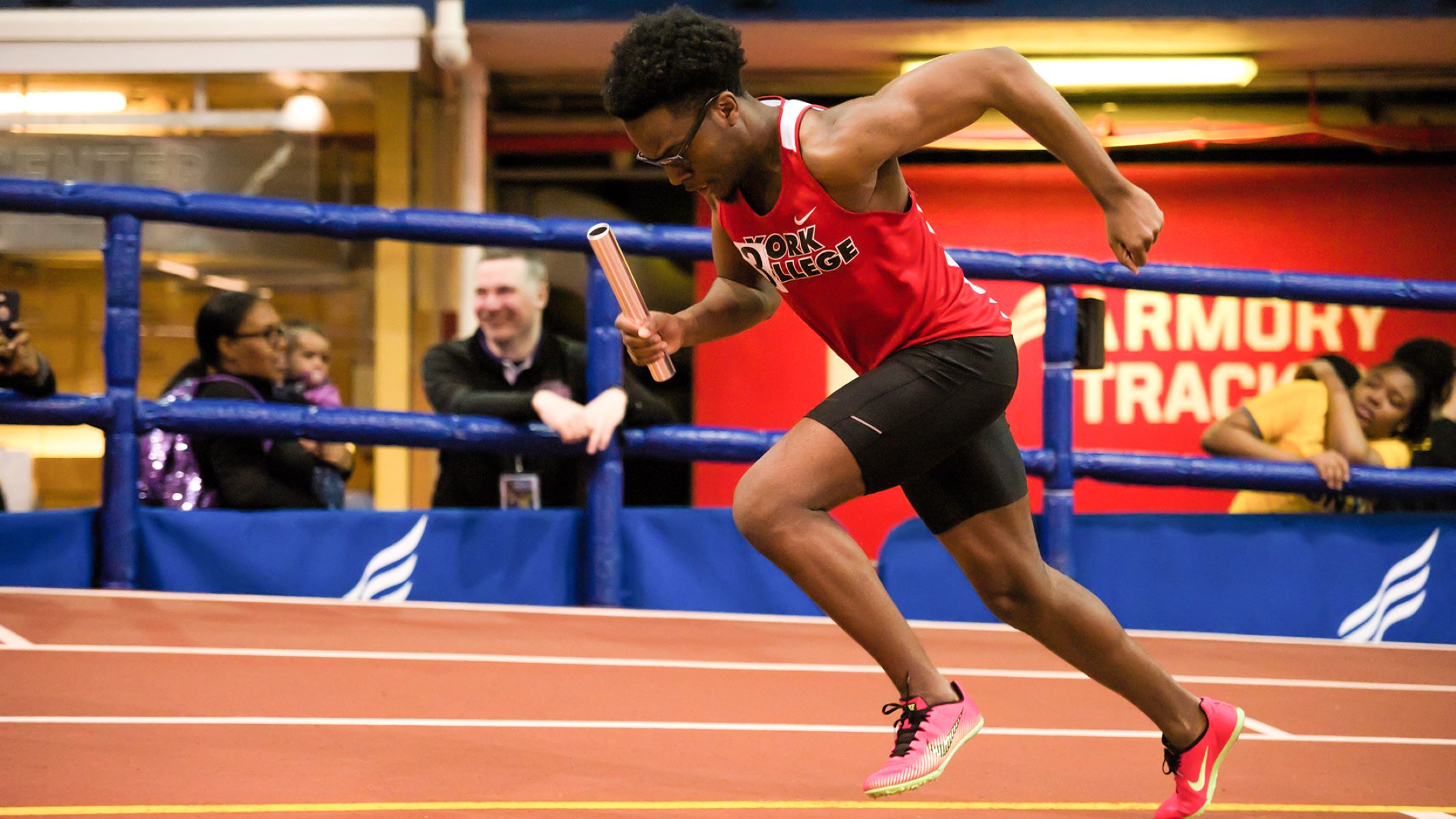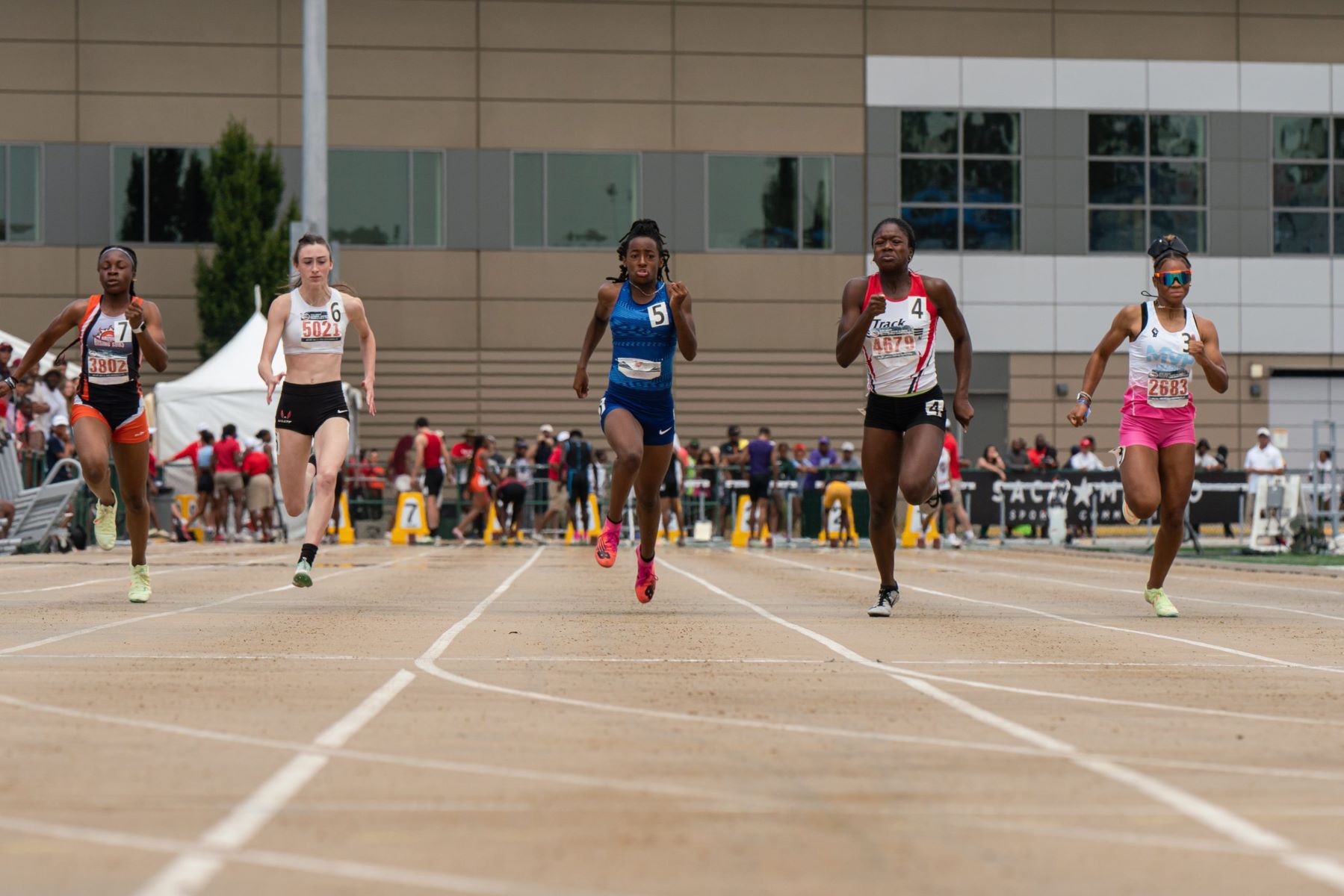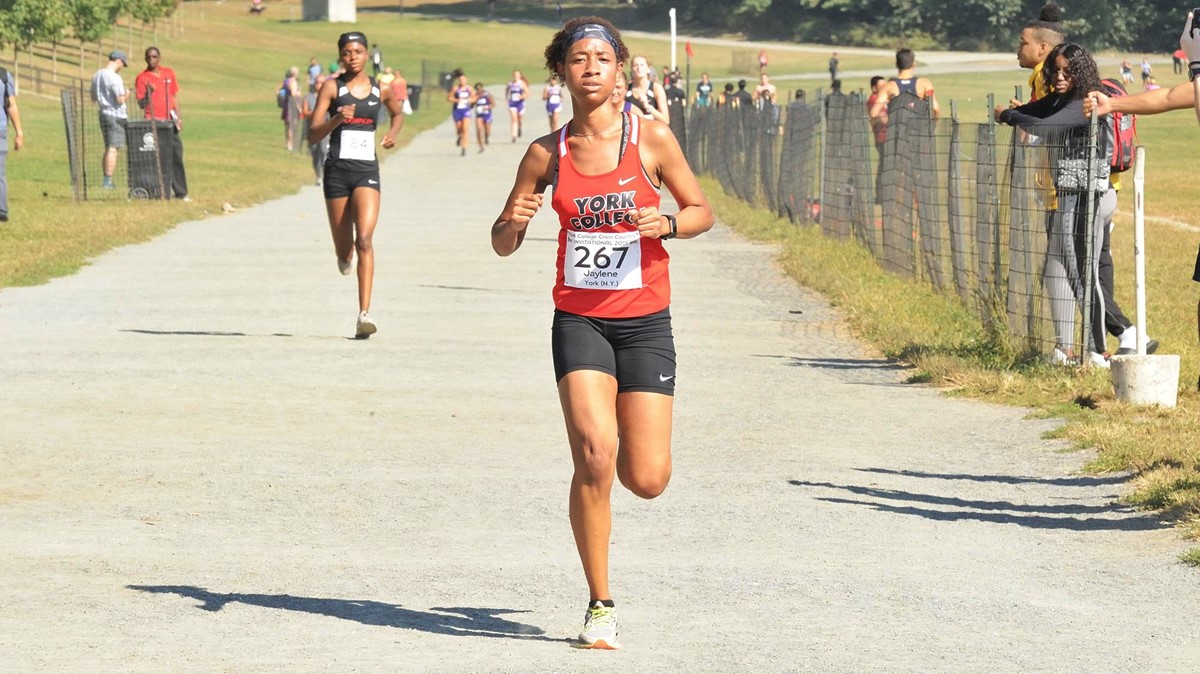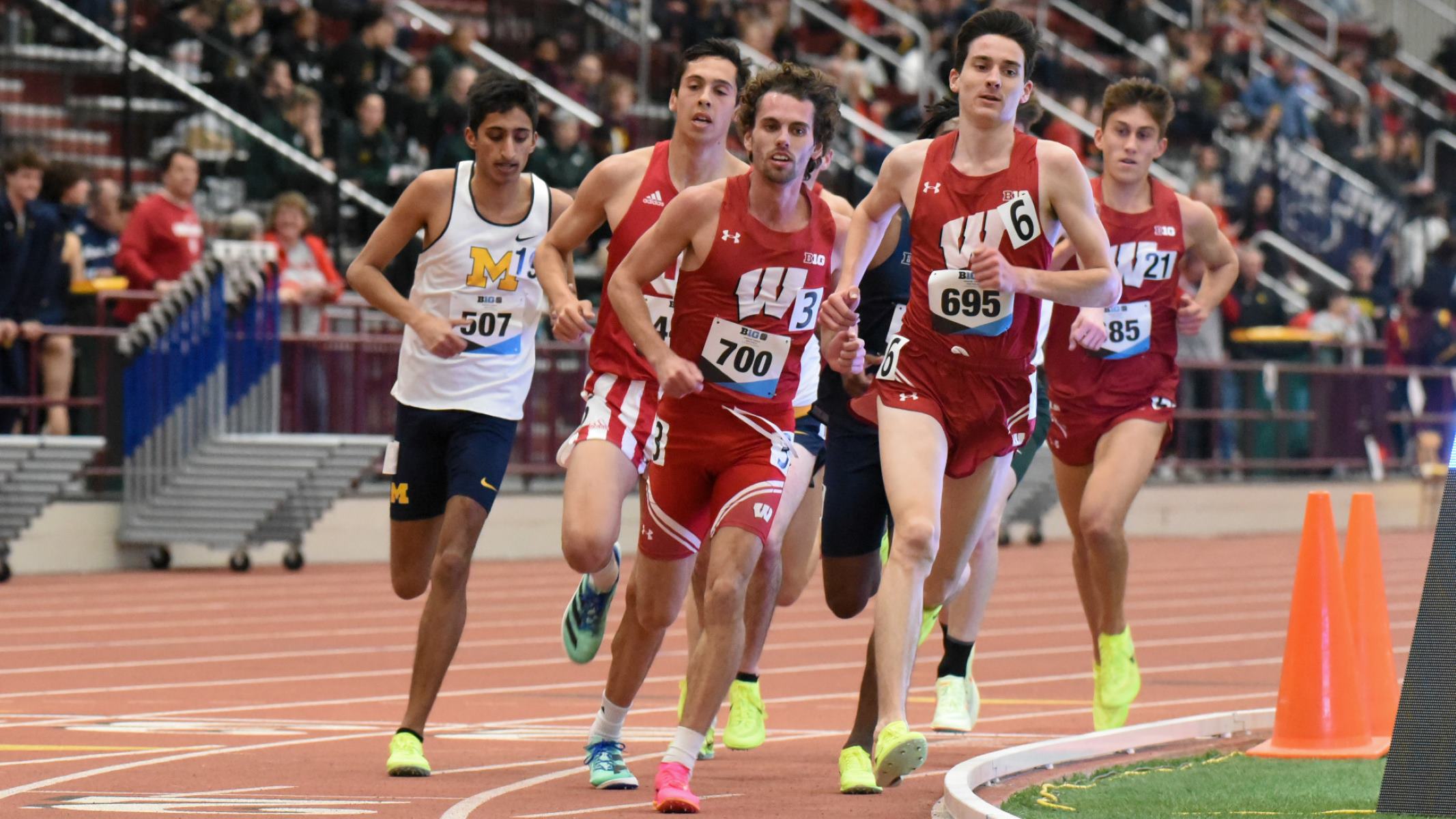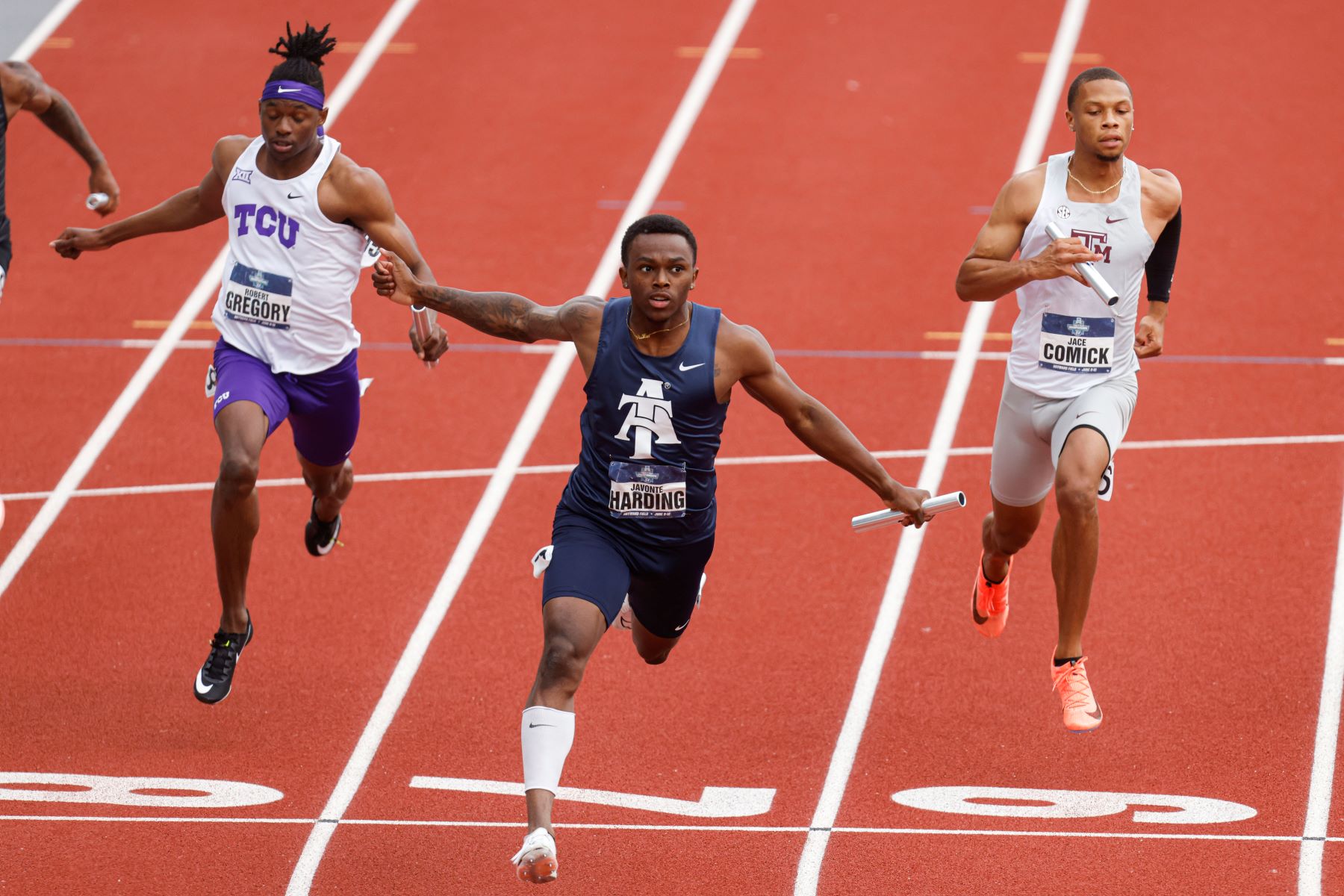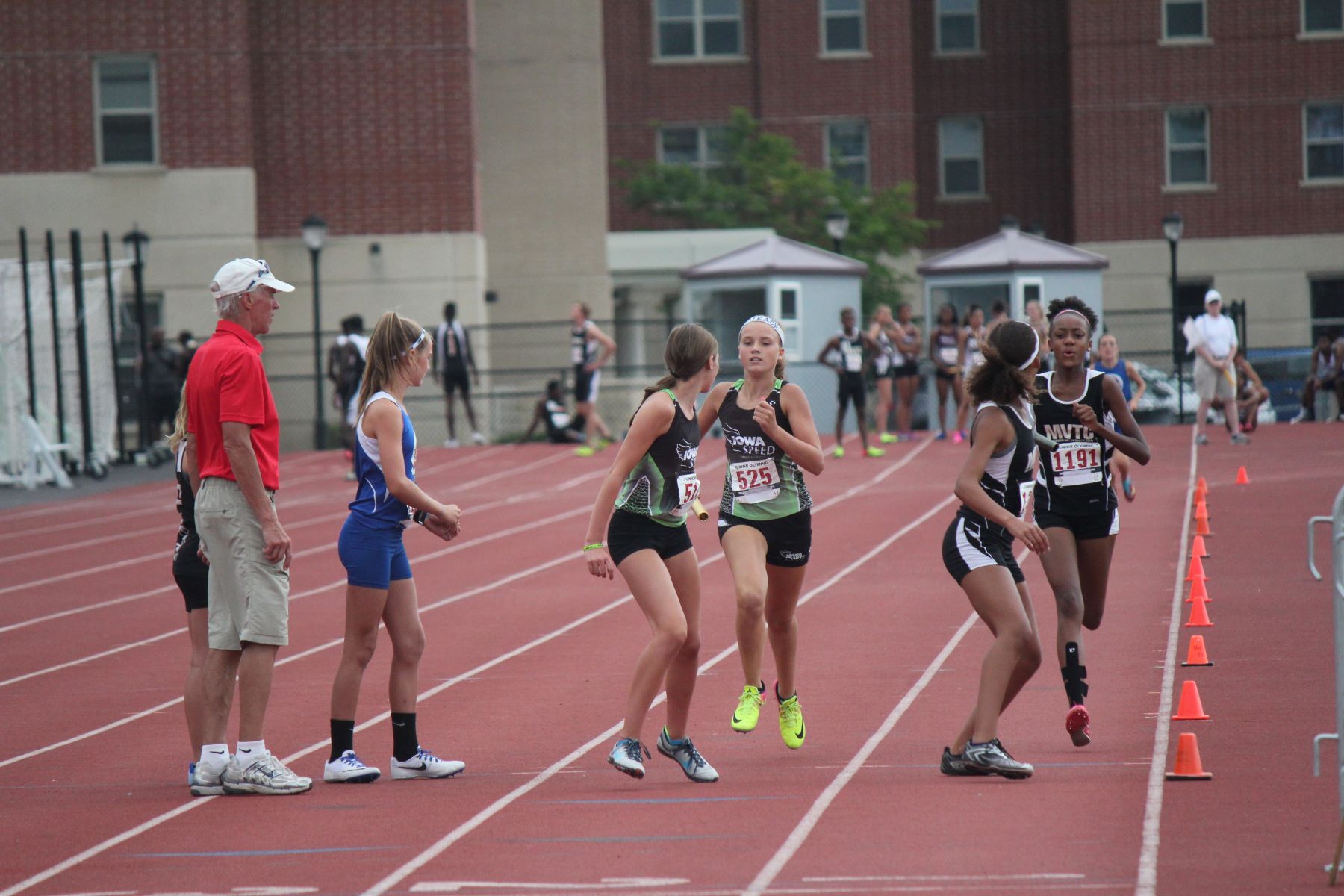Home>Misc>Featured>A List Of College Athletes Who Turned Pro In Track And Field
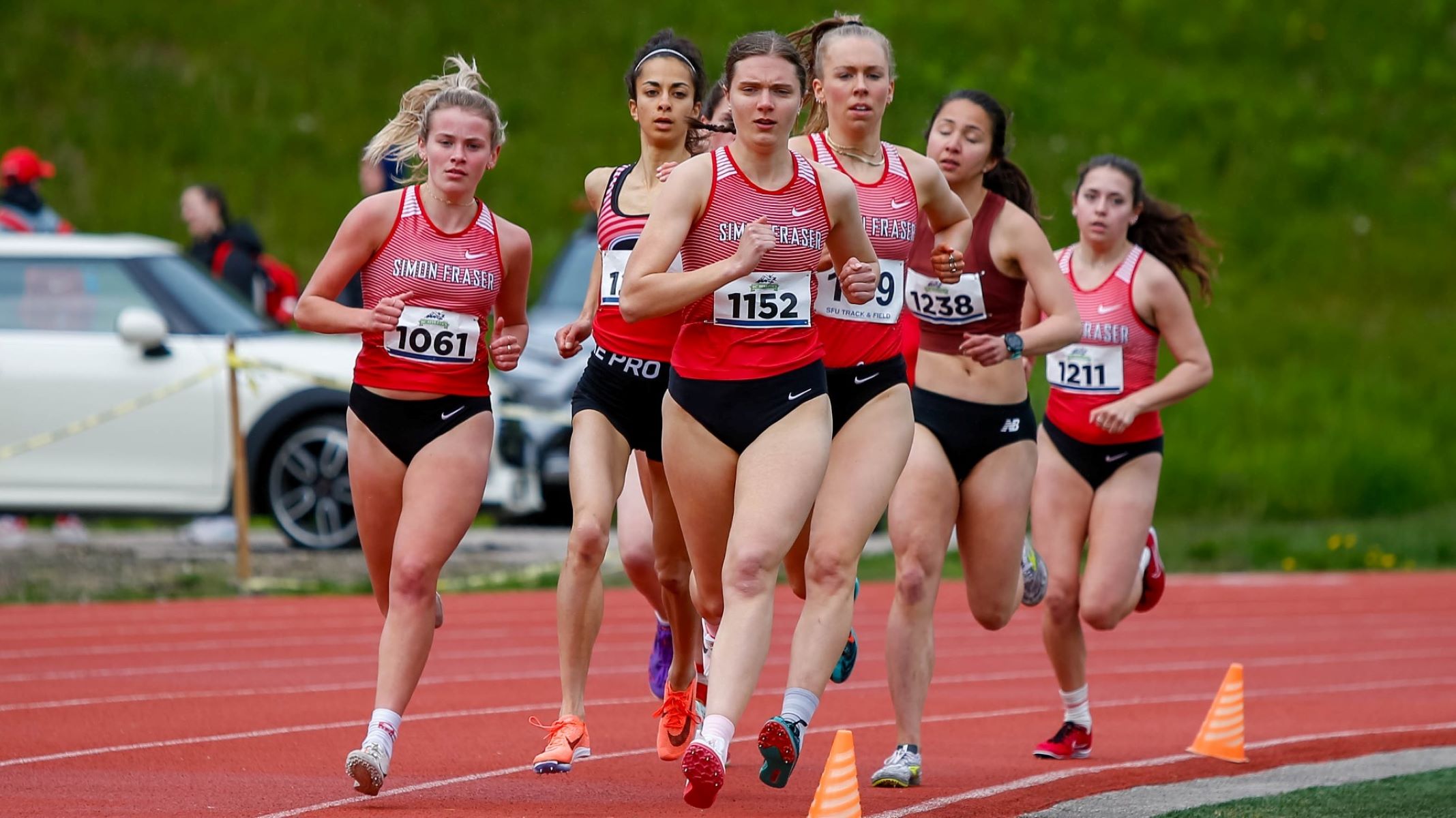

Featured
A List Of College Athletes Who Turned Pro In Track And Field
Modified: January 22, 2024
Discover the inspiring stories of featured college athletes who made their mark in track and field, turning pro and leaving an indelible legacy on the podium.
Introduction
Welcome to the exciting world of collegiate track and field, where young athletes showcase their talent, determination, and passion for the sport. Many college track and field athletes dream of one day competing at the professional level, representing their country in international competitions, and achieving personal bests that will leave a lasting legacy. In this article, we will explore the journey of college athletes who have successfully transitioned to the professional track and field scene.
Track and field is a sport that combines various athletic events such as sprints, long jump, high jump, shot put, and discus throw, among others. Collegiate track and field programs provide a platform for young athletes to develop their skills and compete against top-tier athletes from different universities. These programs also offer invaluable coaching, training facilities, and resources that enable athletes to reach their full potential.
For many college track and field athletes, the ultimate goal is to turn professional after their collegiate career. This transition to the professional level opens up a world of opportunities, including sponsorship deals, endorsement contracts, and the chance to compete on the global stage. However, this journey is not without its challenges and obstacles.
In this article, we will delve into the history and importance of college track and field programs, discuss the benefits of turning pro in the sport, explore the challenges faced by college athletes during this transition, and highlight some of the successful athletes who have made the leap from college to the professional ranks. By doing so, we hope to shed light on the incredible journey of these athletes and inspire the next generation of track and field stars.
History of College Track and Field
The history of college track and field dates back several centuries, with its roots in ancient Olympic games and athletic competitions. In the United States, college track and field programs have a rich history that has contributed to the development and popularity of the sport.
The first collegiate track and field competition in America took place in 1864 between Harvard and Yale, marking the beginning of organized collegiate athletics. Over time, more universities recognized the importance of track and field as both a competitive sport and a means to promote physical fitness and healthy competition among students.
As the sport grew in popularity, colleges and universities started investing in dedicated track and field facilities, hiring specialized coaches, and offering scholarships to talented athletes. This led to the establishment of formal track and field programs, which served as a breeding ground for future champions and medalists.
One significant development in the history of college track and field was the formation of the National Collegiate Athletic Association (NCAA) in 1906. The NCAA became the governing body for college athletics, including track and field, and introduced regulations and guidelines to ensure fair competition and protect the well-being of student-athletes.
Throughout the 20th century, college track and field programs enjoyed a surge in popularity and prominence. Top-tier athletes from around the world were drawn to American universities, attracted by the opportunity to compete at a high level, receive quality education, and benefit from state-of-the-art training facilities.
As the sport evolved, new events were added to the track and field program, such as the women’s heptathlon and steeplechase. Women’s track and field gained recognition, and more universities started offering scholarships and support for female athletes.
College track and field competitions continue to be a major highlight of the sporting calendar, with events like the National Championships and conference championships attracting large audiences and showcasing the immense talent and dedication of student-athletes.
Overall, the history of college track and field is a testament to the enduring legacy of the sport and the vital role that college programs have played in shaping the careers of athletes and contributing to the advancement of track and field on a national and international scale.
Importance of College Track and Field Programs
College track and field programs play a pivotal role in the development of athletes, both as competitors and as individuals. These programs offer numerous benefits that contribute to the growth and success of track and field athletes.
First and foremost, college track and field programs provide a structured and supportive environment for athletes to train and compete. They offer state-of-the-art facilities, coaching expertise, and access to specialized training programs that help athletes improve their skills and reach their full potential. The guidance and mentorship provided by experienced coaches can be instrumental in helping athletes refine their techniques, set realistic goals, and develop a winning mindset.
Furthermore, college track and field programs offer educational opportunities that go beyond the sport. Athletes have the chance to pursue higher education and earn degrees while honing their athletic abilities. This dual focus on academics and athletics ensures a well-rounded education and prepares athletes for success both on and off the field.
College track and field programs also provide athletes with valuable opportunities to compete at a high level. Intercollegiate competitions allow athletes to test their skills against top-tier opponents from different universities, fostering a competitive spirit and helping athletes gauge their progress. These competitions also serve as a platform for athletes to showcase their talent to scouts, potential sponsors, and national team selectors, opening doors to further opportunities in the sport.
Moreover, college track and field programs instill important life skills in athletes. The dedication, discipline, and perseverance required in training and competing at the collegiate level translate into valuable qualities that athletes can carry into their personal and professional lives. Athletes learn the importance of time management, teamwork, and resilience, which are essential skills for success in any field.
Additionally, college track and field programs contribute to the overall growth and popularity of the sport. Through their participation and achievements, college athletes inspire and motivate younger generations to pursue track and field. This not only expands the talent pool and encourages grassroots development but also raises the profile of the sport, attracting more fans, sponsors, and media attention.
The importance of college track and field programs cannot be overstated. They provide athletes with the necessary support, resources, and opportunities to excel in their athletic pursuits, while also promoting personal growth and preparing them for future endeavors. These programs serve as the foundation for many successful athletes who go on to make significant contributions to the sport at the professional level.
Benefits of Turning Pro in Track and Field
Turning professional in the sport of track and field comes with a plethora of exciting opportunities and benefits for athletes who have honed their skills in college. Here are some of the key advantages of transitioning to the professional level:
1. Financial Opportunities: One of the most significant benefits of turning pro in track and field is the potential for financial gain. As professional athletes, track and field stars have the opportunity to secure sponsorship deals, endorsement contracts, appearance fees, and prize money. These financial opportunities not only provide stability but also reward the hard work and dedication put into the sport.
2. Global Recognition: Competing as a professional track and field athlete opens doors to international recognition. Athletes have the chance to represent their country at prestigious events such as the Olympics, World Championships, and Diamond League meets. This exposure not only elevates an athlete’s profile but also offers the chance to compete against the best in the world and establish a reputation as a top-caliber athlete.
3. Elite Training and Support: Professional track and field athletes have access to elite training facilities, specialized coaching, and comprehensive support teams. This includes sports scientists, physiotherapists, nutritionists, and mental performance coaches, all working together to optimize an athlete’s performance. The resources and expertise available at the professional level can take an athlete’s training and performance to new heights.
4. Travel and Cultural Experiences: Turning pro in track and field often involves competing in various countries around the world. This presents athletes with incredible opportunities to travel, explore different cultures, and experience new environments. Traveling for competition can broaden an athlete’s horizons, provide valuable life experiences, and create memories that will last a lifetime.
5. Networking and Sponsorship Opportunities: As professional athletes, track and field stars have the chance to network with influential individuals in the sports industry, including agents, coaches, and fellow athletes. These connections can lead to lucrative sponsorship deals, training opportunities, and mentorship, all of which can significantly contribute to an athlete’s success and career progression.
6. Personal Growth and Fulfillment: Transitioning to the professional level in track and field allows athletes to fully dedicate themselves to their passion. It offers a sense of fulfillment, as athletes have the opportunity to focus on their sport at the highest level. The challenges and successes experienced as a professional athlete contribute to personal growth, resilience, and character development.
Overall, turning pro in track and field brings with it a range of benefits that go beyond financial gain. The global recognition, elite training and support, travel experiences, networking opportunities, and personal growth make the transition to the professional ranks an enticing and rewarding endeavor for college track and field athletes.
Challenges Faced by College Athletes Transitioning to Pro Track and Field
While transitioning from college to the professional track and field scene is an exciting time for athletes, it also comes with its fair share of challenges. Here are some of the common hurdles that college athletes face as they make the leap to the professional ranks:
1. Increased Competition: Moving from the collegiate level to the professional circuit means facing a significant rise in competition. College athletes must adjust to competing against seasoned professionals who have been honing their skills for years. The higher level of competition can be intimidating and may require athletes to elevate their training, performances, and mental resilience.
2. Choice of Representation: As college athletes transition to the professional level, they often face the challenge of selecting suitable representation. Finding the right agent or management team is crucial as they play a pivotal role in securing sponsorship deals, negotiating contracts, and managing an athlete’s career. Making an informed decision in this area can have a profound impact on an athlete’s success and long-term prospects.
3. Financial Instability: While professional track and field does offer financial opportunities, many athletes face initial financial instability. Unlike college scholarships and financial aid, professional athletes must rely on sponsorships, endorsements, and prize money to support themselves. Building a sustainable income stream can take time, and athletes may need to explore alternative sources of income until they establish themselves in the professional circuit.
4. Travel Demands: Competing as a professional track and field athlete often requires extensive travel. Athletes may be on the road for weeks or months at a time, adjusting to different time zones, climates, and training facilities. This constant movement can be physically and mentally draining, and athletes must adapt to the demands of a nomadic lifestyle while maintaining their training routines and well-being.
5. Health and Injury Management: In track and field, as with any high-performance sport, injuries are a common occurrence. College athletes transitioning to the professional level may face the challenge of managing their health and injury prevention more independently. Proactive measures such as proper training techniques, strength and conditioning programs, and seeking professional medical advice become crucial for athletes aiming to stay at the top of their game.
6. Mental and Emotional Pressure: The transition to the professional track and field scene can bring heightened mental and emotional pressure. Athletes must cope with the expectations of sponsors, coaches, and fans, as well as the pressure they place on themselves to perform at their best consistently. Developing effective coping strategies and maintaining a healthy mindset becomes essential for athletes to navigate the challenges of the professional circuit successfully.
Despite these challenges, many college athletes have successfully transitioned to the professional track and field scene, leveraging their talent, determination, and resilience to overcome obstacles and forge successful careers. The journey from college to the professional level requires tenacity, adaptability, and perseverance, but the rewards of competing at the highest level in track and field make it a worthwhile pursuit.
Successful College Athletes Who Turned Pro in Track and Field
The transition from college track and field to the professional ranks has witnessed the rise of numerous successful athletes who have made a significant impact on the sport. These athletes serve as inspiring examples of the possibilities that await those who make the leap to the professional level. Here are a few notable college track and field athletes who have achieved remarkable success as professionals:
1. Usain Bolt: Bolt, widely regarded as the greatest sprinter of all time, began his track and field journey at the collegiate level in Jamaica. After his collegiate career, Bolt turned professional and went on to win multiple Olympic gold medals and set numerous world records in the 100m, 200m, and 4x100m relay events.
2. Allyson Felix: Felix competed for the University of Southern California (USC) before becoming a professional athlete. She has since become one of the most decorated female sprinters in history, winning multiple Olympic gold medals and holding numerous records in various sprint events.
3. Ashton Eaton: Eaton, a decathlete, competed at the University of Oregon before transitioning to the professional level. He went on to win two Olympic gold medals and set the world record in the decathlon at the 2012 Olympics.
4. Shelly-Ann Fraser-Pryce: Fraser-Pryce, representing Jamaica, burst onto the global stage after her collegiate career. As a professional, she has won multiple Olympic gold medals and is known for her dominance in the women’s 100m event.
5. Christian Taylor: Taylor, a triple jumper, competed for the University of Florida before turning professional. He has since won multiple Olympic gold medals, set numerous records in the triple jump, and is considered one of the greatest triple jumpers of all time.
6. Galen Rupp: Rupp, a distance runner, competed for the University of Oregon before transitioning to the professional level. He has since won multiple Olympic medals and set American records in various distance events.
These athletes, among many others, showcase the immense talent and dedication of college track and field athletes who have successfully made the transition to the professional ranks. Their achievements serve as a testament to the importance of college track and field programs in nurturing and developing future stars of the sport.
By observing the success of these athletes, current college track and field athletes can find inspiration, motivation, and guidance as they pursue their own professional aspirations. The stories of these successful athletes illuminate the possibilities and opportunities that await those who are willing to put in the hard work and dedication required to excel in track and field at the highest level.
Conclusion
The journey from college track and field to the professional level is a path filled with challenges, excitement, and immense opportunities. College track and field programs play a crucial role in nurturing and developing talented athletes, providing them with the necessary resources, training, and support to excel in their sport.
As demonstrated by the history of college track and field, these programs have served as the foundation for the growth and popularity of the sport. The importance of college track and field programs cannot be overstated, as they offer athletes a platform to compete, improve, and attract attention from scouts and sponsors.
Turning pro in track and field opens up a world of possibilities for athletes. It offers financial opportunities, global recognition, elite training and support, travel experiences, networking prospects, and personal growth. While the transition poses challenges such as increased competition, financial instability, and the demands of a nomadic lifestyle, the rewards far outweigh the difficulties.
Successful college track and field athletes who have made the transition to the professional ranks serve as inspiring examples of what can be achieved. Their remarkable achievements highlight the potential for those who embrace the opportunities that come with turning pro.
In conclusion, college track and field serves as a crucial stepping stone for athletes aspiring to compete at the professional level. The history, importance, and benefits of college track and field programs, as well as the challenges faced by athletes transitioning to the professional ranks, underscore the significance of this journey. Through dedication, perseverance, and a commitment to personal growth, college track and field athletes can pave the way for successful careers as professional competitors, leaving a lasting impact on the sport they love.
